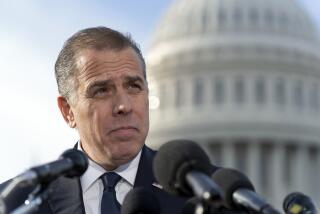Lost chances in ‘Kid Nation’
- Share via
In the end, the “Kid Nation” pre-premiere hoopla amounted to much ado about nothing.
The children of Bonanza City never came close to building a new town; the grown-ups who publicly stated they were investigating the production for possibly skirting child welfare and labor laws never got a probe off the ground; and CBS did not get the big hit it was hoping for.
The CBS reality show came under fire this summer after New Mexico officials charged that CBS and Good TV Inc., the production company, did not apply for proper work permits or waivers for the children and denied the officials access to the set on a ranch near Santa Fe. The firestorm intensified when a letter from the mother of a participant claiming that children were abused and endangered during the production became public.
“Kid Nation” took reality television into another realm by placing 40 children, ages 8 to 15, in a movie ranch near Santa Fe without any contact with their parents for 40 days. Since it premiered Sept. 19, critics have noted that “Kid Nation” doesn’t live up to its hype because the children never built their own society. Instead, they followed instructions and suggestions by producers -- in the form of a mysterious journal -- at every turn.
Still, the notion that a reality show is not real is hardly the stuff of government probes. Three months after announcing that New Mexico Atty. Gen. Gary King was investigating the permit process, the 22-page contract between producers and parents, and whether the production company illegally refused to allow inspectors onto the property, officials now say they have dropped the matter.
“It has been determined that absent any formal complaints to this office or request for investigation by any state agency, the Attorney General’s Office will not pursue any further inquiry into the ‘Kid Nation’ production in New Mexico,” according to a statement issued to The Times.
The New Mexico Department of Workforce Solutions, which previously claimed that producers denied inspectors access to the set three times, said in a statement that it also “does not have any plans to investigate the Good TV production/Kid Nation.”
CBS and creator Tom Forman, who owns Good TV, have maintained all along that they did not break or skirt laws during the production, which took place in April and May.
This week, CBS issued the following statement: “Throughout the preseason controversy, we said the true story of ‘Kid Nation’ would be told through the episodes on the air and the voices of the 40 kids who participated. We remain confident that ‘Kid Nation’ was produced in a legal and ethical manner, and we stand behind the quality of what is on the screen.”
Only one question lingers. Although “Kid Nation” did not grow into the hit the network had imagined, it is unknown if a second group of “pioneers” will be called upon to leave home for 40 days. A CBS spokesman said the network has not decided if it will produce another season, but “there has been casting and other preproduction activity so the show would be ready in the event of a pick-up.” The second season application requires that children and parents have passports.
“Kid Nation” has garnered an audience of 7.7 million viewers and ranks third in its 8 p.m. Wednesday time slot among total viewers and among 18- to 49-year-olds. The show places eighth among all programs viewed by 2- to 11-year-olds. The season finale is scheduled to air Dec. 12.
maria.elena.fernandez@ latimes.com
More to Read
The complete guide to home viewing
Get Screen Gab for everything about the TV shows and streaming movies everyone’s talking about.
You may occasionally receive promotional content from the Los Angeles Times.






